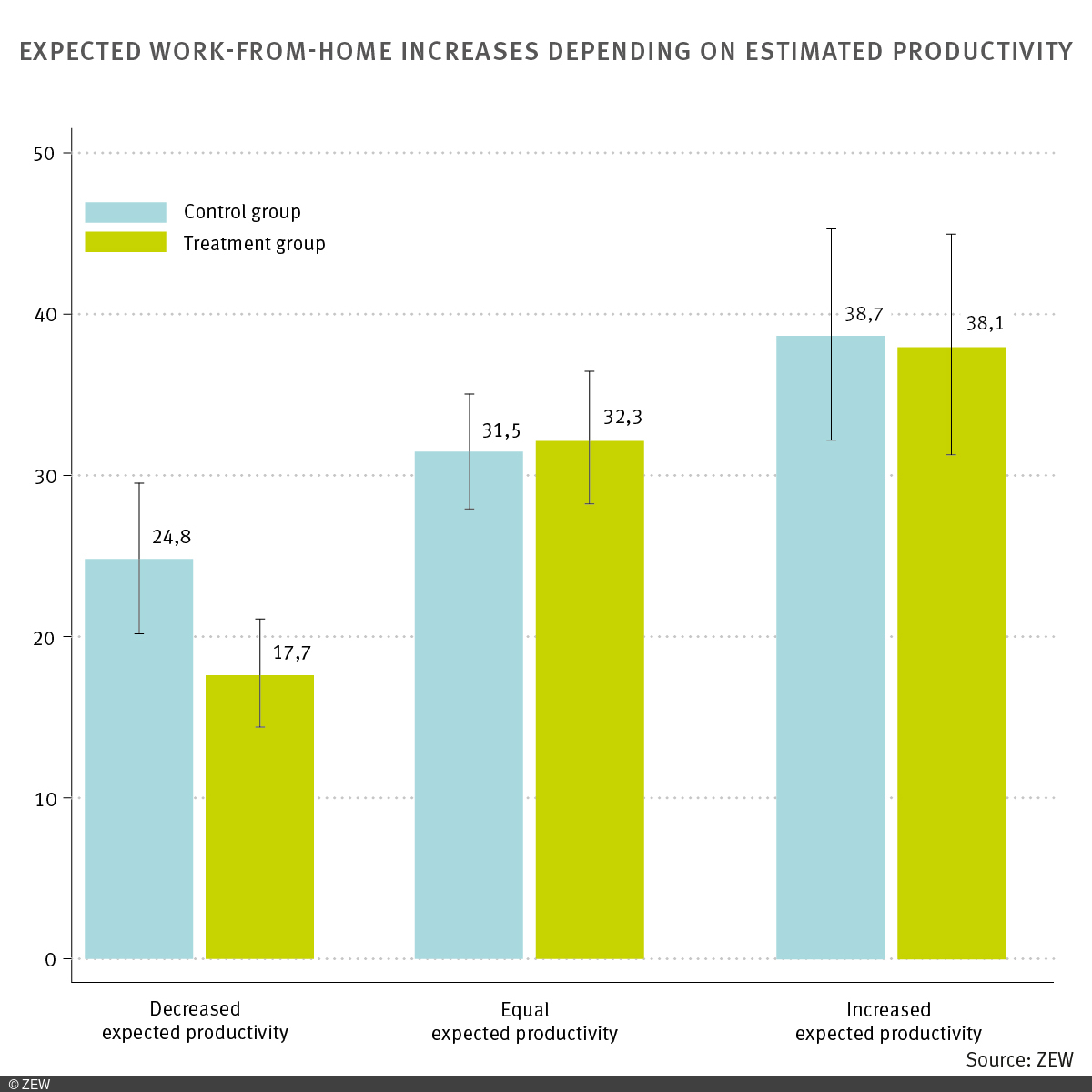Perception of Productivity Influences Prevalence of Work-from-Home Offers
ResearchZEW Study: Experiences with Work-from-Home Productivity
As demonstrated in a recently published study from ZEW Mannheim, managers’ positive perceptions regarding work-from-home productivity increase the long-term availability of such offers. Firms which associate working from home with positive productivity outcomes plan to offer more work-from-home arrangements than firms with a more sceptical attitude. The results come from a survey of 800 firms in the information economy between 2020 and 2022.
The COVID-19 pandemic forced many employers and employees to experiment with work from home for the first time, and the majority were pleasantly surprised with the results, including productivity. “Our study shows a positive correlation between subjective perceptions regarding productivity effects in a work-from-home environment and long-term plans to institute work-from-home arrangements,” explains Dr. Daniel Erdsiek, researcher in ZEW’s “Digital Economy” Unit and co-author of the study. “Surveyed firms who view working from home as equally or even more productive than office work plan to expand such offerings markedly more than their peers.”
Positive experiences during the pandemic
For more than one-third of all firms in the information economy opinions on work-from-home productivity improved during the pandemic. In the case of large firms with at least 100 employees, almost 60 per cent are now more optimistic about the productivity of employees working from home than before the pandemic. Therefore, pre-pandemic opinions about working from home were distorted in many firms. However, the past few years of experience have caused firms to revise their prejudices and negative expectations on the topic. The change in expectations is one possible reason that the pandemic-related surge of work-from-home offers may persist into the future.
Pursuant to this, it seems logical to assume that firms are inclined to facilitate work-from-home practices when they do not expect negative outcomes from doing so. Nevertheless, empirical proof for a causal relationship remains elusive because many factors could contribute to this positive correlation. ZEW’s research study therefore bases itself on two survey experiments which seek to isolate these effects.
Survey experiments allow for more precision
The first survey varied the question order. One group of recipients was required to consider possible productivity effects prior to answering questions about their work-from-home plans. This group serves as the treatment group. The control group was, on the contrary, first asked about their work-from-home plans. The more favourable firms assess possible productivity effects, the higher the expected shift toward working from home. This finding is true for both the treatment and the control group. However, the changed order of questions has an additional effect on long-term work-from-home plans if firms associate working from home with lower productivity. For these more sceptical firms, thinking about productivity beforehand leads to a lower expected use of working from home, on average. This result suggests that subjective perceptions of productivity effects have an impact on the long-term diffusion of working from home in German firms. A second survey experiment conducted by ZEW researchers confirms this conclusion.
Between December 2020 and June 2022, approximately 800 firms from the information economy, which includes the ICT sector, media service providers as well as knowledge-intensive service providers, took part in the ZEW survey.


